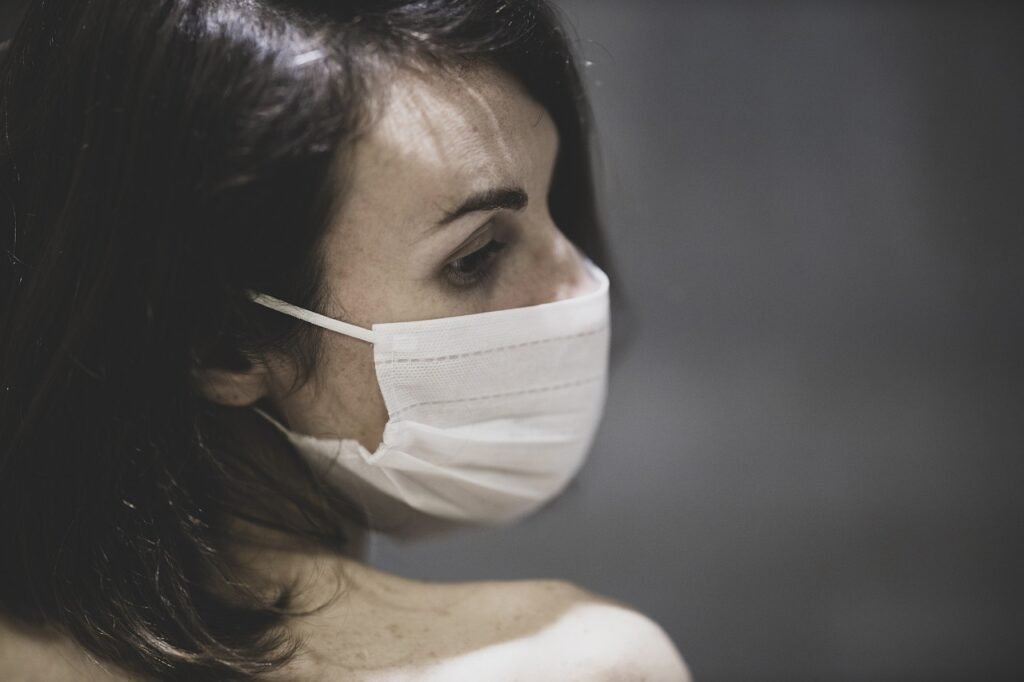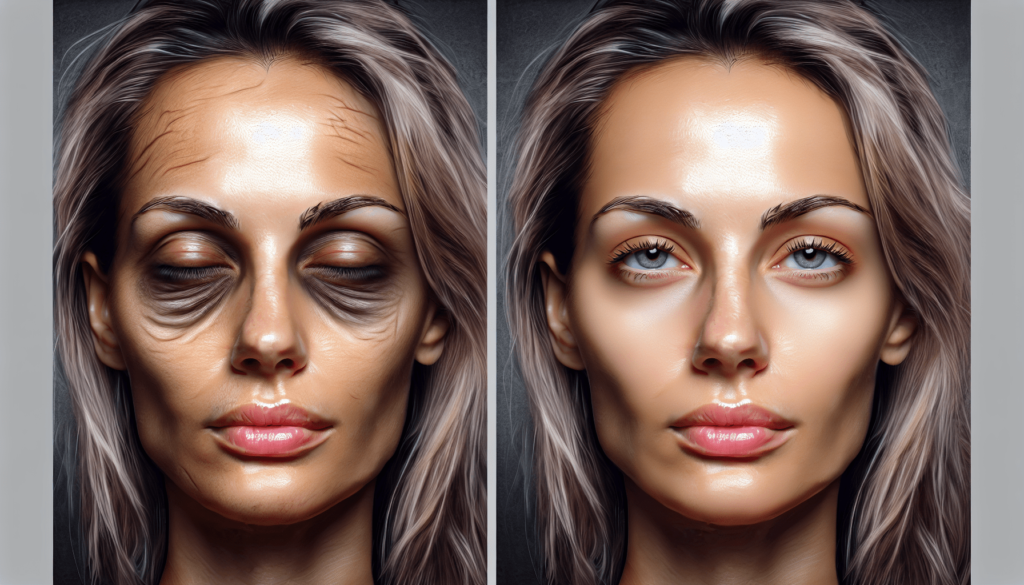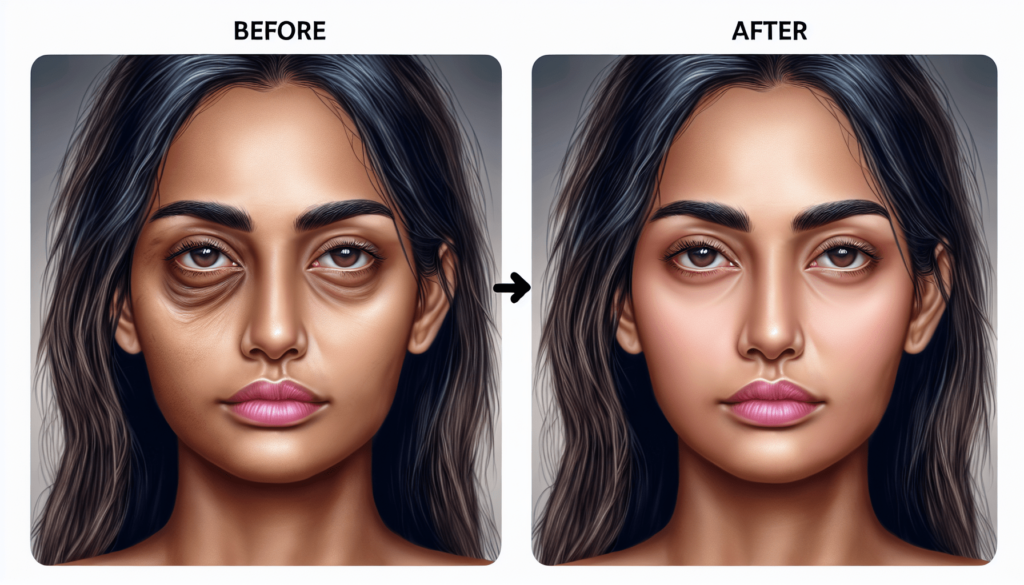Get Enough Sleep. When You Don’t Get Enough Sleep, It Can Show On Your Face. You May Look Tired, Puffy, And Dull. Aim For 7-8 Hours Of Sleep Each Night.
We all know that getting enough sleep is important for our overall health and well-being. But did you know that it can also have a significant impact on how you look? When you don’t get enough sleep, it can show on your face. You may notice that your skin appears tired, puffy, and dull. The good news is, there’s a simple solution – aim for 7-8 hours of sleep each night. By prioritizing your sleep, not only will you feel more rested, but your complexion will thank you too. So, make sleep a priority and let your radiant skin be the evidence of your well-rested self.
The Importance of Getting Enough Sleep
Getting enough sleep is crucial for your overall well-being and appearance. Not only does sleep affect your energy levels and cognitive function, but it also plays a significant role in maintaining healthy and youthful-looking skin. In this article, we will explore the effects of lack of sleep on the body, specifically focusing on the relationship between sleep deprivation and facial appearance. We will also delve into the science behind sleep and skin health, provide tips for getting a good night’s sleep, discuss the benefits of 7-8 hours of sleep, and offer suggestions on how to prioritize sleep in your daily routine. Additionally, we will explore natural remedies for better sleep and the option of seeking professional help for sleep issues. Lastly, we will touch upon the role of skincare in enhancing sleep quality. By understanding the importance of sleep and implementing strategies to improve sleep quality, you can enjoy both improved overall health and a vibrant and youthful appearance.
The Impact of Sleep Deprivation on Facial Appearance
Dark circles and puffiness under the eyes
One of the most visible effects of sleep deprivation on facial appearance is the appearance of dark circles and puffiness under the eyes. Lack of sleep can cause blood vessels under the thin skin of the eyes to dilate, leading to a bluish tint and the formation of dark circles. Additionally, fluid can accumulate in the area, causing puffiness and swelling.
Pale and uneven skin tone
Another noticeable effect of insufficient sleep is a dull and uneven skin tone. When you don’t get enough sleep, your body’s circulation is compromised, resulting in reduced blood flow to the skin. This can leave your complexion looking pale and lackluster. Uneven skin tone, including an increase in redness and blotchiness, can also be a result of poor sleep quality.
Increased wrinkles and fine lines
Sleep deprivation can accelerate the aging process by increasing the appearance of wrinkles and fine lines. When you sleep, your body repairs and regenerates skin cells. Without adequate sleep, this process is disrupted, leading to a breakdown in collagen and elastin, the proteins responsible for maintaining the skin’s firmness and elasticity. The result is increased wrinkle formation and a loss of skin plumpness.
Dull and lifeless complexion
One of the most noticeable effects of lack of sleep on facial appearance is a dull and lifeless complexion. When you’re sleep-deprived, your skin’s natural radiance diminishes, making it look tired and lackluster. This can be attributed to the impaired skin barrier function caused by inadequate sleep, which leads to dehydration and a loss of moisture in the skin.

This image is property of pixabay.com.
The Science behind Sleep and Skin Health
Increased stress hormone levels
Sleep deprivation can disrupt the body’s hormonal balance, leading to an increase in stress hormone levels, such as cortisol. Elevated cortisol levels can trigger inflammation in the body, including the skin, leading to various skin issues like acne, eczema, and psoriasis. The increased stress hormone levels can also impair the skin’s ability to heal and regenerate, resulting in a compromised skin barrier function.
Decreased collagen production
Collagen is a vital component of the skin that helps maintain its firmness and elasticity. Sleep deprivation can disrupt collagen production and promote its breakdown. Reduced collagen levels in the skin can lead to increased wrinkle formation and a loss of skin plumpness.
Reduced blood flow to the skin
During sleep, blood flow to the skin increases, delivering oxygen and nutrients that promote skin health and radiance. When you don’t get enough sleep, this blood flow is compromised, resulting in reduced oxygen and nutrient supply to the skin. As a result, the skin can appear pale and lacking vitality.
Impaired skin barrier function
Adequate sleep plays a crucial role in maintaining the integrity of the skin’s barrier function. Sleep deprivation can impair this function, leading to increased transepidermal water loss and dehydration. A compromised skin barrier can make the skin more susceptible to environmental damage and irritants, resulting in various skin issues like dryness, sensitivity, and inflammation.
Tips for Getting a Good Night’s Sleep
Establishing a consistent sleep schedule is vital for getting a good night’s sleep. Try to go to bed and wake up at the same time every day, even on weekends. This helps regulate your body’s internal clock and enhances sleep quality.
Creating a calm and comfortable sleep environment can significantly improve your sleep. Make sure your bedroom is cool, dark, and quiet. Invest in a comfortable mattress, pillows, and bedding that suit your preferences.
Limiting caffeine intake, especially in the afternoon and evening, can help ensure a good night’s sleep. Avoid consuming caffeinated beverages or foods that contain caffeine close to bedtime.
Avoiding electronic devices before bedtime is essential for quality sleep. The blue light emitted by screens can interfere with your body’s production of melatonin, a hormone that regulates sleep. Instead, try engaging in relaxing activities like reading or practicing gentle stretching.
Implementing relaxation techniques before bed can promote better sleep. Try techniques like deep breathing exercises, progressive muscle relaxation, or taking a warm bath to help calm your mind and body before sleep.

This image is property of pixabay.com.
The Benefits of 7-8 Hours of Sleep
Getting 7-8 hours of sleep each night offers numerous benefits for your overall health and well-being. Apart from the obvious increase in energy levels, getting sufficient sleep enhances cognitive function, boosts the immune system, and promotes healthy and glowing skin.
Improved energy levels: When you get enough sleep, you wake up feeling refreshed and rejuvenated. Your energy levels are higher, allowing you to tackle the day’s tasks with ease.
Enhanced cognitive function: A good night’s sleep is essential for optimal brain function. Sufficient sleep improves concentration, memory, decision-making, and problem-solving skills. It also enhances creativity and productivity.
Boosted immune system: Sleep is crucial for your immune system’s ability to fight off infections and illnesses. During sleep, your body produces and releases proteins called cytokines that help fight inflammation and infection. Insufficient sleep can weaken your immune system and make you more susceptible to illnesses.
Healthy and glowing skin: The benefits of sufficient sleep extend to your skin as well. When you get enough rest, your skin has time to repair and rejuvenate itself. This results in a healthier complexion, reduced signs of aging, and a natural glow.
How to Prioritize Sleep in Your Daily Routine
Identifying and eliminating sleep disruptors can significantly improve your sleep quality. Assess your environment for factors like noise, light, and temperature that may be affecting your ability to fall asleep or stay asleep. Address these issues to create a sleep-friendly environment.
Setting realistic sleep goals is important for ensuring consistency in your sleep routine. Aim to get 7-8 hours of sleep each night and plan your schedule accordingly. Prioritize sleep by avoiding activities that can be postponed to ensure you can devote enough time to rest.
Incorporating relaxation techniques into your daily routine can help relax your mind and body, making it easier to fall asleep and improve sleep quality. Consider activities like meditation, journaling, or gentle stretching before bed to signal to your body that it’s time to wind down.
Making sleep a priority requires a conscious effort. Treat sleep as an essential part of your daily routine and allocate time for it accordingly. This may involve making adjustments to your schedule or saying no to activities that interfere with your sleep time.

This image is property of pixabay.com.
Natural Remedies for Better Sleep
In addition to adopting healthy sleep habits, you can also try natural remedies to improve your sleep quality. These remedies can help relax your mind and body, preparing you for a restful night’s sleep.
Herbal teas for relaxation: Certain herbal teas like chamomile, lavender, and valerian root have calming properties that can promote relaxation and improve sleep quality. Enjoy a warm cup of herbal tea before bed to unwind and prepare for sleep.
Aromatherapy with calming scents: Essential oils like lavender, bergamot, and chamomile can help create a peaceful atmosphere and promote relaxation. Use a diffuser or apply a few drops of essential oil to your pillow before sleep to benefit from their calming effects.
Deep breathing exercises: Deep breathing exercises can help slow down your heart rate, relax your body, and promote a sense of calm. Practice deep breathing techniques before bed to signal to your body that it’s time to sleep.
Yoga and meditation: Engaging in gentle yoga stretches or meditation before bed can help release tension, promote relaxation, and prepare your body for sleep. Incorporate these practices into your nighttime routine to unwind and de-stress.
Seeking Professional Help for Sleep Issues
If you are experiencing chronic sleep issues or suspect you may have a sleep disorder, seeking professional help is recommended. A sleep specialist can assess your symptoms, conduct sleep studies if necessary, and provide guidance and treatment options to improve your sleep.
Consulting a sleep specialist: A sleep specialist is a medical professional with expertise in diagnosing and treating sleep disorders. They can evaluate your sleep patterns, perform a physical examination, and recommend appropriate interventions to address your sleep issues.
Exploring options like sleep studies and therapy: In some cases, a sleep study may be recommended to gather more information about your sleep patterns and identify any underlying sleep disorders. Therapy, such as cognitive-behavioral therapy for insomnia, can also be beneficial in addressing sleep-related issues.
Addressing underlying medical conditions: Sleep problems can sometimes be a symptom of an underlying medical condition. Seeking professional help can help identify and address any medical conditions that may be contributing to your sleep issues.

The Role of Skincare in Enhancing Sleep Quality
Establishing a nighttime skincare routine can not only benefit your skin but also enhance sleep quality. A consistent skincare routine helps signal to your body that it’s time to wind down and prepare for sleep.
Choosing products with soothing and calming ingredients: Look for skincare products that contain ingredients like chamomile, lavender, or aloe vera, known for their soothing and calming properties. These ingredients can help relax your skin and promote a sense of calm before bed.
Using facial massage techniques to relax before bed: Incorporating facial massage techniques into your skincare routine can help release tension in the face and relax your muscles. Use gentle, upward strokes to massage your face and neck, promoting relaxation and preparing your body for sleep.
Conclusion
Prioritizing sufficient sleep is crucial for both overall health and maintaining a youthful and vibrant appearance. When you don’t get enough sleep, it can show on your face, making you look tired, puffy, and dull. By understanding the impact of sleep deprivation on facial appearance and the science behind sleep and skin health, you can take steps to improve your sleep quality. Implementing tips for getting a good night’s sleep, embracing the benefits of 7-8 hours of sleep, and incorporating natural remedies can lead to a more restful sleep experience. If needed, seeking professional help for sleep issues can provide further guidance and interventions. Lastly, incorporating skincare practices into your nighttime routine can not only enhance your skin’s health but also enhance sleep quality. By prioritizing sleep and taking care of your skin, you can reap the numerous benefits of a well-rested body and enjoy a youthful and vibrant appearance. So, make sleep a priority and aim for 7-8 hours of sleep each night to unlock the potential of a healthier and happier you.


